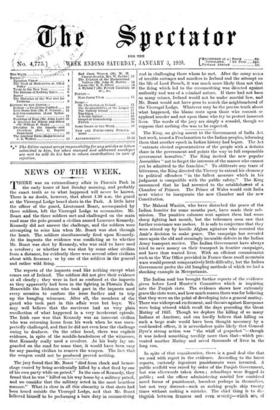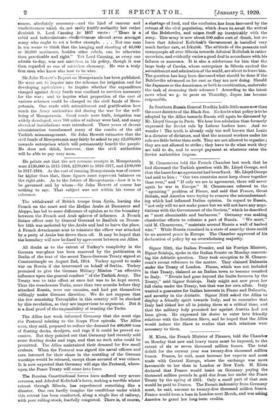In spite of that consideration, there is a good deal
else that we read with regret in the evidence. According to the latest reports, curiously ingenious punishments were invented. A public scaffold was raised by order of the Punjab Government, but was afterwards taken down ; schoolboys were flogged in public ; and the officer administering martial law contrived novel forms of punishment, harmless perhaps in themselves, but not very discreet—such as making people skip twenty times without making a mistake. The chief thing is to dis- tinguish between firmness and even severity—which are, of course, absolutely necessary—and the kind of rancour and vindictiveness whip]; do not really iortify eautlwrity but rather diminish it. Lord Canning in- /857 wrote : " There is a rabid and indiscriminate .vintetivanuas abroad =even amongst many who ought to set a better example. . . . Not one man in ten seems to think that the hanging and shooting of 40,000 or 50,000 mutineers, besides other rebels, can be otherwise than practicable and right." Yet Lord Canning, as every one admits to-day, was not mistaken in his policy, though it was then regarded as one of mistaken clemency. He was- a truly firm man who knew also how to be •wise.











































 Previous page
Previous page